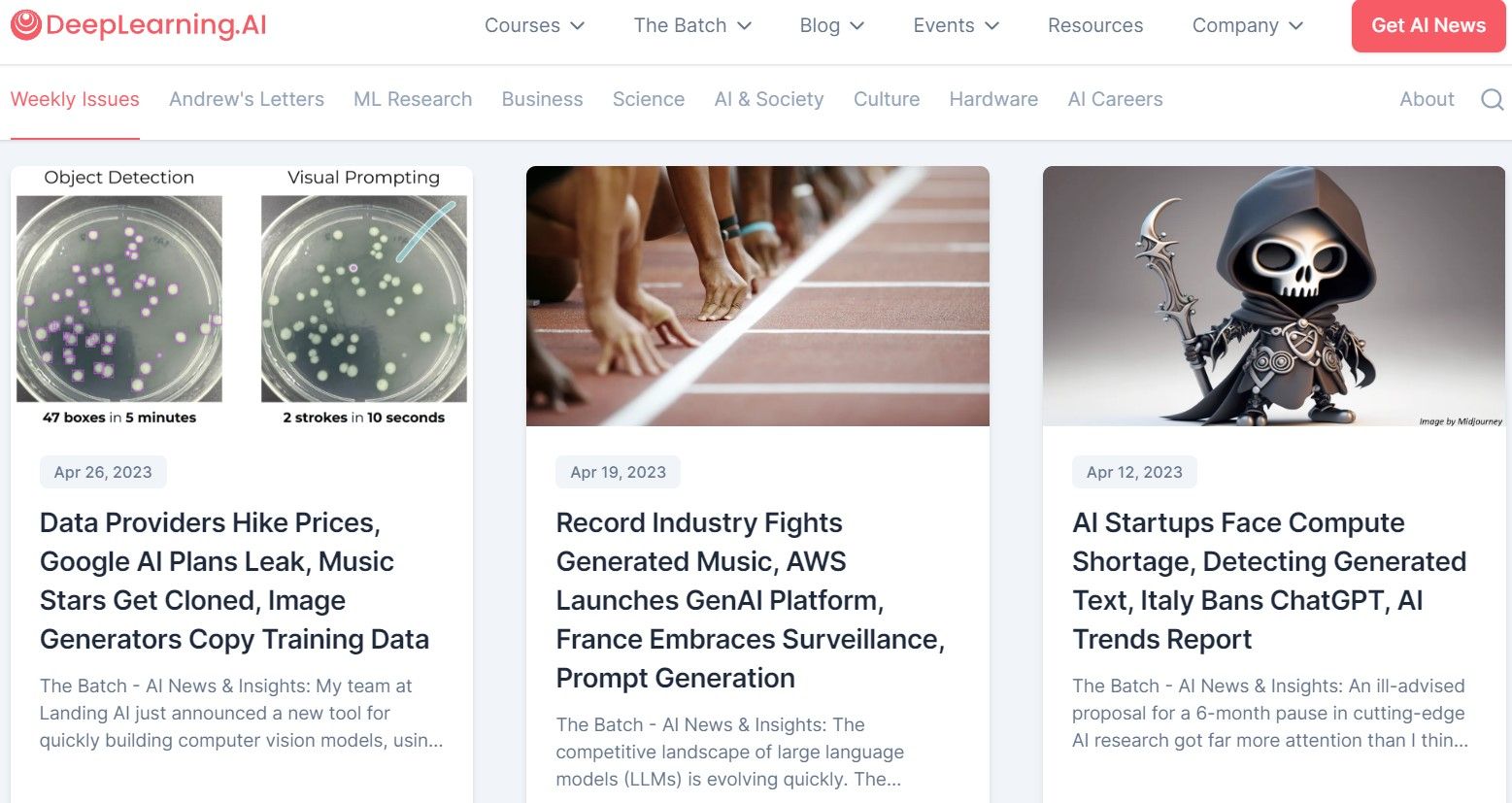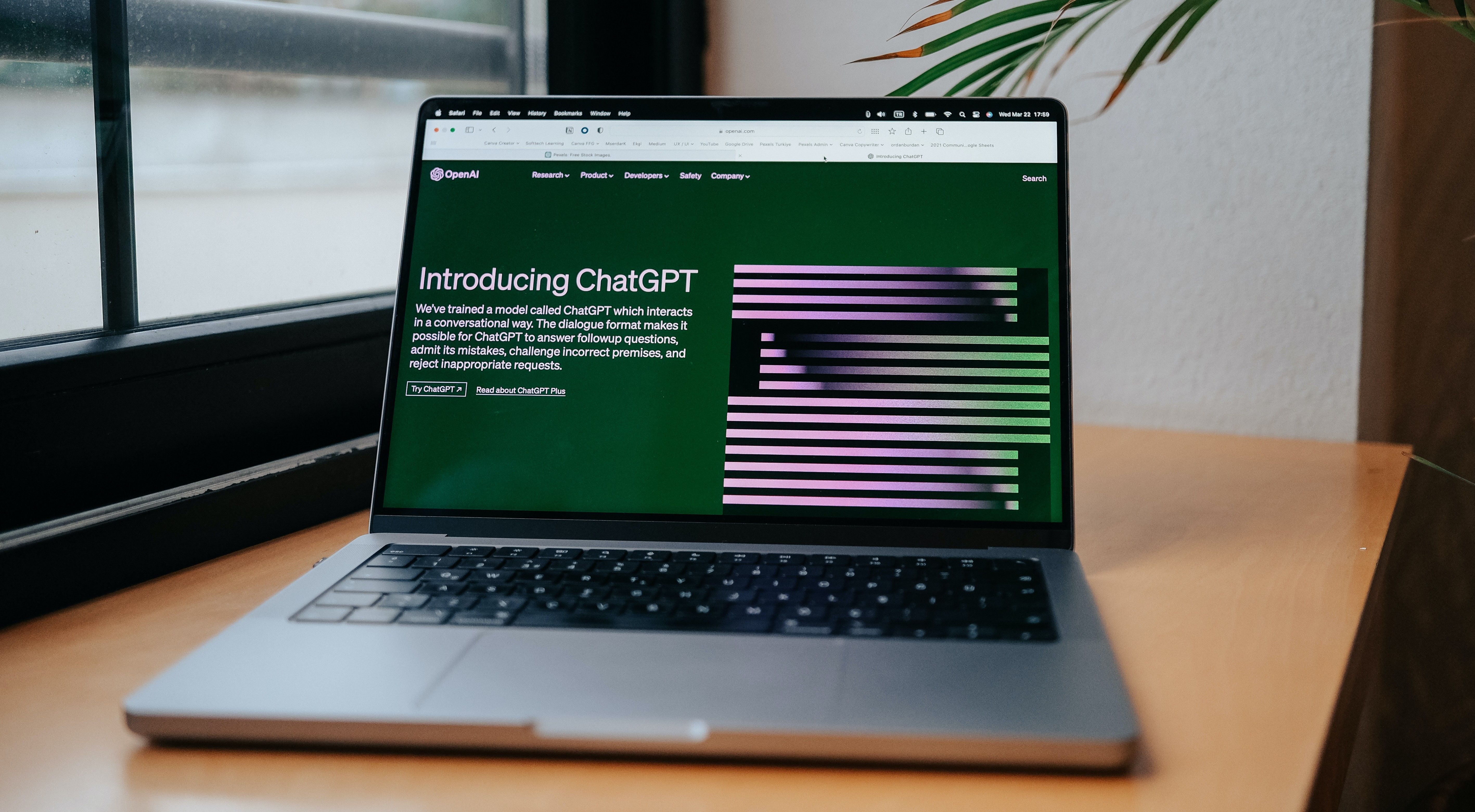If all the hype and chatter about AI has given you the jitters, you’re not the only one. With overblown headlines popping up about threats to jobs and the “dangers” of AI, no wonder many people are feeling anxious about the rapidly evolving technology.
AI doesn’t need to be feared, but it is worth addressing and tackling any AI-related anxieties you have. Take a few minutes to learn about AI, understand why there is such widespread concern about it, and focus on what you can do to overcome your AI fears.
First Things First: What Is AI?
Fear is often born out of the unknown and so understanding what AI is and what it does are the first steps to overcoming your AI anxiety.
Artificial intelligence (AI) is the simulation of human intelligence where machines and computers are programmed to perform tasks that humans can do. This can include understanding language, recognizing objects and patterns, and learning from experience or repetition.
AI programming involves:
- Learning through acquired data and creating rules (algorithms) to complete tasks.
- Reasoning by choosing an algorithm to reach an outcome.
- Self-correction where AI continually improves its “knowledge” to provide the most accurate and up-to-date results.
- Creativity is achieved through AI using a variety of processes to general new things, including images, text, music, and more.
The idea of artificial intelligence is probably older than you think, with computer scientist John McCarthy coining the term back in 1956. As with all technological inventions, AI was designed to ease pain points and problems and to increase pleasure. You can learn more about the origins and purposes of AI in our guide.
Hopefully, this gives a clearer picture of what AI is and why it was created. The next step is to understand why people are so anxious about it.
Stop Obsessing Over the News
We all know that the media loves to run sensationalist headlines, and the most insecure of outlets will create hyperbolic “news” stories to compel readers like yourself to engage with their content. This doesn’t serve you as someone trying to make sense of AI; instead, it’s likely to confuse and misinform you.
If you find yourself overwhelmed by the constant headlines about AI, it’s time to tune out of the news. If you’re seeing AI content splashed over your social media feeds, try using a digital detox tool to help wean yourself off your doom-scrolling habit.
Find Trustworthy and Objective AI Development Resources
Along with hyperbolic headlines, you’re likely to come across all sorts of myths about AI online, which will only add to your anxiety levels.
If you still want to keep up to date with the latest AI news and research, you should choose your resources wisely. Check out these objective resources to keep up to date with AI developments without the anxiety-inducing rhetoric:
- The Batch. This education technology company is striving for an AI-powered future. Sign up for the weekly newsletter to digest AI news and breakthroughs without feeling overwhelmed.
- MIT News. Regarded as one of the top universities in the world, The Massachusetts Institute of Technology (MIT) has a dedicated AI news section that delves into the true tech side of AI—no fear-mongering to be found here.
- ScienceDaily. For breaking AI news and reliable information, check out ScienceDaily’s Artificial Intelligence News.
As with all news sources, it pays to read actively and with a critical mind. If you feel anxious during reading—whether on a sensationalist news forum or reputable research website—take a step away from the source until you feel better.
Use Meditation or Journaling to Sit With Your Feelings
Sometimes, the best thing to do is sit with and process difficult feelings and emotions, rather than run from them. AI is here to stay, so trying to focus on what’s in your control (your thoughts and emotions) rather than what isn’t (the fast-paced development and implementation of AI programming) can help steady your nerves.
Meditation can help ease anxiety and racing thoughts by encouraging you to focus on the present moment. Read our guide on how to get started with meditation if you’re new to the concept. Otherwise, try scheduling time to meditate each day to help combat AI-induced anxiety.
Another popular anxiety management tool is to journal. If you’re feeling overwhelmed, putting pen to paper (or fingertips to screens) to write out your racing thoughts can help you gain perspective. Try My Possible Self—a mental health app certified by Priory Healthcare that uses cognitive behavioral therapy (CBT) techniques to help users build a self-care toolkit.
Download: My Possible Self for Android | iOS (Free)
Directly Engage With AI Yourself
Yes, you read that correctly. As you learned earlier, fear and anxiety have a correlation with the unknown, so playing around with AI and finding a personal understanding might help soften your anxiety around it.
Try these free AI tools to see what the fuss is all about:
- ChatGPT. For a conversational artificial intelligence chatbot, try using ChatGPT for general searches and inquiries (a bit like googling) to receive conversational and structured responses.
- InteriorAI. For a more visual introduction to AI, InteriorAI can give you inspiration for interior designs. Simply sign up, upload an image of your room, and pick a style to prompt InteriorAI to generate designs for you.
- Grammarly. Did you know that Grammarly is powered by AI? You do now. Using AI techniques including natural language processing (NPL) and machine learning, you can use Grammarly as a professional spell-checking and grammar-correcting AI assistant.
For more involved use of AI, there are many communities for you to learn about AI tools, such as DAIR.AI. Primarily based on Discord, you can find extensive resources covering a variety of AI topics and general knowledge to get you started on DAIR.AI.
Upskill Into AI if You’re Worried About Your Job
The BBC shared an anxiety-inducing headline on AI and how it could replace 300 million jobs. However, if you read the full article you’ll see that the writer claims that AI “may also mean new jobs and a productivity boom.” (This is also an example of a hyperbolic media headline about AI from a news source that's widely regarded as impartial and unbiased!)
AI job anxiety arguably started in 2020, when work-from-home enforcement accelerated technological advancements. The World Economic Forum released a report in the same year suggesting that AI may not lead to massive unemployment, but that there could be 97 million new jobs for humans by 2025.
The key takeaway here is that while the division of labor between humans and machines is almost certain to shift, the best thing to do is to upskill and reskill to be ready for these anticipated new jobs.
If you’re concerned about your job prospects, it might be time to learn how to use AI responsibly to help support your current skills and career. Several professions are already using AI technology, so learning how to master AI or at least integrate it into your current line of work could be worthwhile.
The resources for upskilling or reskilling into or at least aligning with AI will depend on the industry or profession you work in. If you’re in a creative profession such as writing or art, for example, then finding reports on how to use AI responsibly and ethically may be your primary goal. For others, learning how to begin a career in prompt engineering may be enough to elevate you above your human and AI competitors.
Stay Flexible, Open Minded, and Don’t Believe (All) the Hype
With fears about losing jobs to AI and constant overwhelming news headlines, it’s important to recognize that AI is here to stay—for better or worse. The best thing to do is to step away from any inflammatory media response, choose your AI news sources wisely, and focus on what’s in your control: your thoughts toward AI and how you do or don’t use it. Finally, upskilling can help preserve or even advance your career without AI threatening to replace you.





